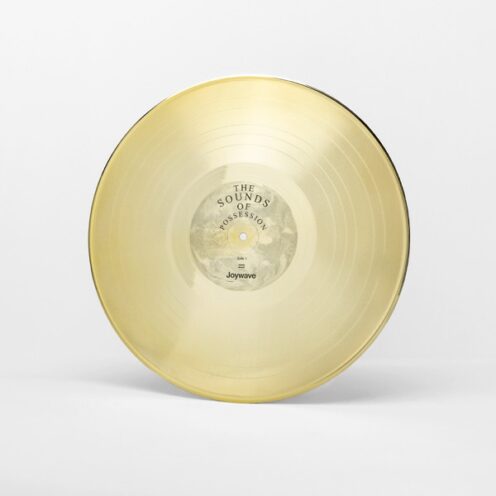
When Joywave set out to record their third studio album in their home studio in Rochester, New York, even they must have been surprised by how much the result of their work would be so relatable in the chaos of a never-ending pandemic. Produced by Joywave front-man, Daniel Armbruster, the band has created a spacey collection of tracks that breathe new life into a society that is struggling for its sense of direction. In some recent interviews regarding Possession, Armbruster mentioned that the album is an investigation of control, and added, “Our heads are spinning. Every day is crazier than the last. Every screen we walk by is shouting at us, demanding our undivided attention. Control over our own lives is constantly under siege.” This album couldn’t have come at a better time, as this quote sears through the noise of uncertainty going on in our lives at this very moment.
“Like A Kennedy” is a sprawling album opener that tackles the uncertainty and doubt of losing faith in the world as a whole. Armbruster carefully sings on the chorus, “Are they gonna bomb us all? / I don’t know / Do you think they’ll build the wall? / I don’t know.” All of these anxieties ring true for a world that seems to be spinning more out of control with each passing day.
“Coming Apart” follows the piano-driven introductory track with more of the stylistic choices that Joywave fans have grown accustomed to over their career. With some driving bass guitar, electronic elements and samples mixed in, its a vintage example of what the band is capable of making when they’re able to tune out all of the other outside noise.
“Half Your Age” brings the record back into the stratosphere with some floaty guitars, atmospheric samples, and some immediate vocals. Armbruster sings on the bridge, “Giving up is not a crime / Moving on when it’s time / Everybody knows in the whole damn city,” which struck a chord with me as we navigate through this pandemic together, it’s easy to forget the human elements that exist in our daily interactions with each other. It’s always been important for us to continue these connections that make life worth living.
Other songs such as “Blank Slate” feature some vocal effects, eerie samples, and fairly straight-forward lyrics. It turned out to be one of the weaker songs on the album; however, the album has a lot going for it, so it’s a forgivable misstep. “F.E.A.R.” luckily sets the ship back on the right course with some of the best work of Joywave’s career. On the chorus, Armbruster sings confidently, “You could push some people around here, around here / You could flex some muscle and thrive here / But every time you’re talking about why you can’t / You bow down surrounded by your fears.” It’s one of the rare moments of full-blast confidence that Armbruster shows on an album filled with more vulnerable moments.
“Funny Thing About Opinions” features a circus-type sample in the beginning, with some near-rapped vocals in the verses that provide some social commentary. It’s one of the stranger songs that Joywave has created in their career, but it oddly fits into the rest of the content on Possession. “Who Owns Who?” features some unique drum beats, and expands upon the rhythmic elements that were tinkered with on some of the earlier songs.
“Blastoffff” was one of the first singles released from the record, and for good reason, it’s one of the stronger songs from the LP. It also is a good indication of the other material found on Possession and hits its intended heights. In this high-energy song, Armbruster outlines his journey as he sings, “Far beyond / You come from a distant land / We’re not like you / You’d never understand.” The lyrics are intended to fit with the album’s loose concept of space travel and also serve as a way of connecting the other themes prevalent on the record.
The title track and “No Shoulder” further investigate the topic of possessions and why we as a society are obsessed with collecting. Whether these collections are of the trivial kind, such as obtaining that elusive last vinyl record or the less physical type of “collecting” friends and making those connections as we navigate through this life. Armbruster summarizes this type of process as he sings in the first verse, “Driver can you help me out there’s something wrong / Knew where I was going but didn’t think it’d take this long / Lately I’ve been thinking that they probably can’t relate to me / ‘Cause it’s possession not possessions that’ll finally set me free.”
The album closer, “Mr. Eastman” lets the band and Armbruster come to terms with their discovery of what it means to be free of the trivial possessions. It’s in the bridge where they admit this when Armbruster sings, “I can feel the shackles falling to the ground / And I will miss my family every then and now / ‘Cause I am not my own, I’ve finally figured out / That I can take my nine-tenths, but they’d still have it all.” Even if we don’t get everything we want in this world, its always been important to remember the good things going on in our lives as they will help us carry on through the darkest of times.